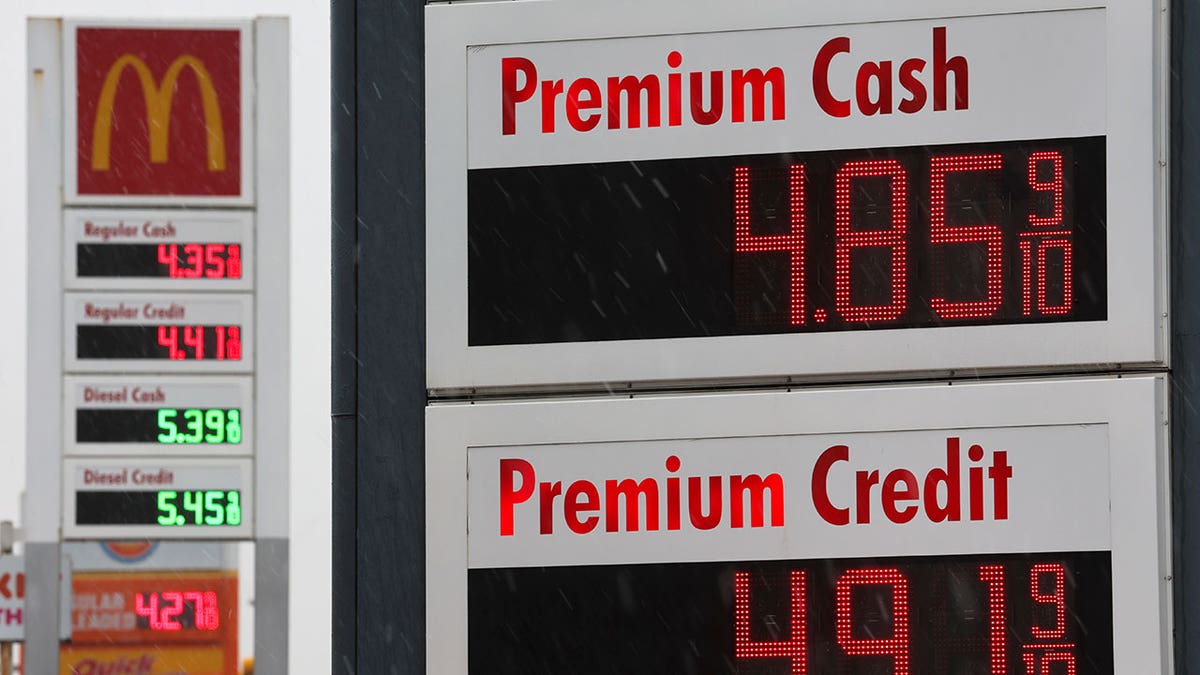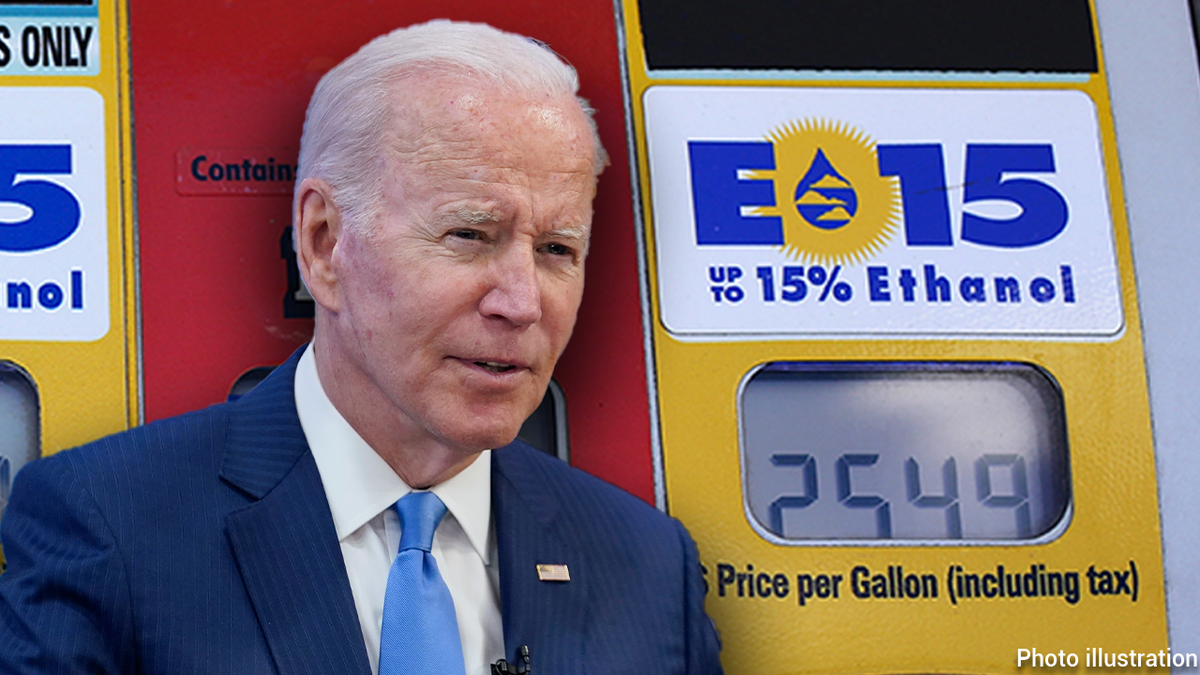Montage: Biden plays blame game on inflation, high gas prices
President Biden has assigned blame for inflation gripping the country on everything from greedy meat corporations to the Russian invasion of Ukraine to the coronavirus pandemic.
A Washington Post column posited that pain at the gas pump is an opportunity for Americans to "make good choices" and reduce carbon emissions in order to curb climate change.
On Thursday, the price of gasoline hit a record all-time high of $4.42, which columnist Eugene Robinson acknowledged has sparked criticism from Americans towards the Biden administration, and sent the Democratic Party scrambling to reframe negative perceptions ahead of the 2022 midterms.
Robinson instead spent the early portion of his column listing off environmental events, including wildfires, heat waves, and rising sea levels, all of which he asserted were the direct result of climate change.
"We just keep finding reasons not to take the steps — or make the sacrifices — that we know are necessary to curb carbon emissions and prevent the worst-case scenarios from becoming our hellish reality," Robinson wrote.
BIDEN CANCELS MASSIVE OIL AND GAS LEASE SALE

Gasoline prices are displayed at a gas station, following Russia's invasion of Ukraine, in Jersey City, New Jersey, U.S., March 9, 2022. REUTERS/Mike Segar ( REUTERS/Mike Segar)
One such sacrifice is paying more at the pump, which Robinson proclaimed would actually mean better lives for future generations, if it meant lowering the demand and world reliance on gasoline.
"We need to see this not as a problem but as an opportunity," Robinson wrote.
According to Robinson, the correct long-term solution is not increasing the supply of fossil fuels, but rather reducing the demand "for the sake of the planet."
Robinson also predicted that the rising cost of gasoline will also push motorists towards the purchase of electric vehicles, touting the new Ford F-150 Lightning. The base model of the truck runs around $40,000.
MIKE ROWE ON GAS PRICES CRUSHING TRUCKERS: 'IT'S HAPPENING IN REAL TIME'

Biden admin authorizes E15 Gas at more stations as fuel supply crisis worsens (AP Photo/Susan Walsh)
"…not cheap, exactly, but within the range of what a buyer would expect to pay for a brand-new pickup with a few bells and whistles," Robinson noted.
The columnist, not shaken by the hefty cost, asked readers to imagine a world in which all the pickups on American roads "stopped belching carbon."
CLICK HERE TO GET THE FOX NEWS APP
"These high gas prices, and shallow lakes, are telling us to make good choices. We should listen," he concluded.










































